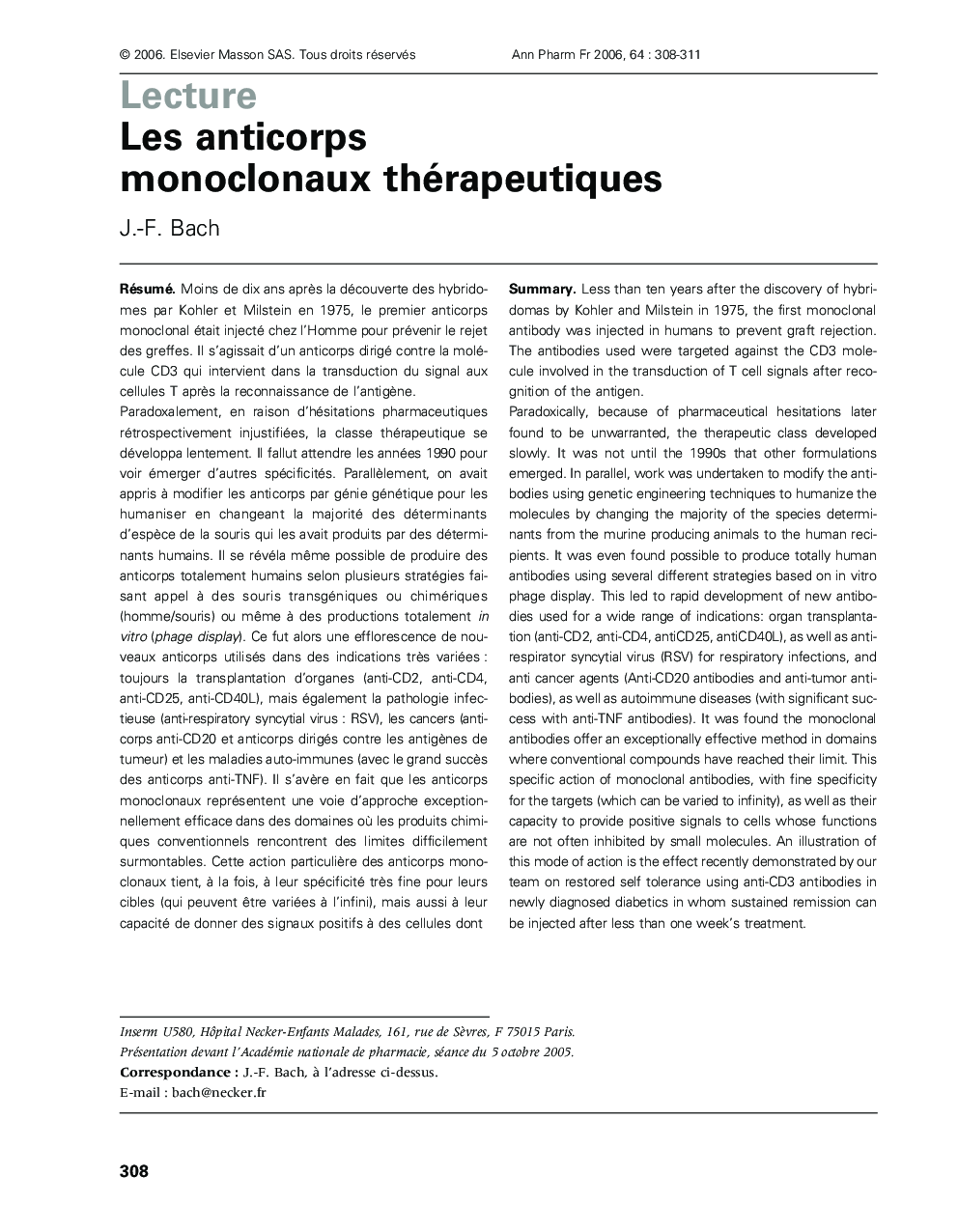| Article ID | Journal | Published Year | Pages | File Type |
|---|---|---|---|---|
| 2478471 | Annales Pharmaceutiques Françaises | 2006 | 4 Pages |
Abstract
Paradoxically, because of pharmaceutical hesitations later found to be unwarranted, the therapeutic class developed slowly. It was not until the 1990s that other formulations emerged. In parallel, work was undertaken to modify the antibodies using genetic engineering techniques to humanize the molecules by changing the majority of the species determinants from the murine producing animals to the human recipients. It was even found possible to produce totally human antibodies using several different strategies based on in vitro phage display. This led to rapid development of new antibodies used for a wide range of indications: organ transplantation (anti-CD2, anti-CD4, antiCD25, antiCD40L), as well as antirespirator syncytial virus (RSV) for respiratory infections, and anti cancer agents (Anti-CD20 antibodies and anti-tumor antibodies), as well as autoimmune diseases (with significant success with anti-TNF antibodies). It was found the monoclonal antibodies offer an exceptionally effective method in domains where conventional compounds have reached their limit. This specific action of monoclonal antibodies, with fine specificity for the targets (which can be varied to infinity), as well as their capacity to provide positive signals to cells whose functions are not often inhibited by small molecules. An illustration of this mode of action is the effect recently demonstrated by our team on restored self tolerance using anti-CD3 antibodies in newly diagnosed diabetics in whom sustained remission can be injected after less than one week's treatment.
Keywords
Related Topics
Health Sciences
Pharmacology, Toxicology and Pharmaceutical Science
Drug Discovery
Authors
J.-F. Bach,
